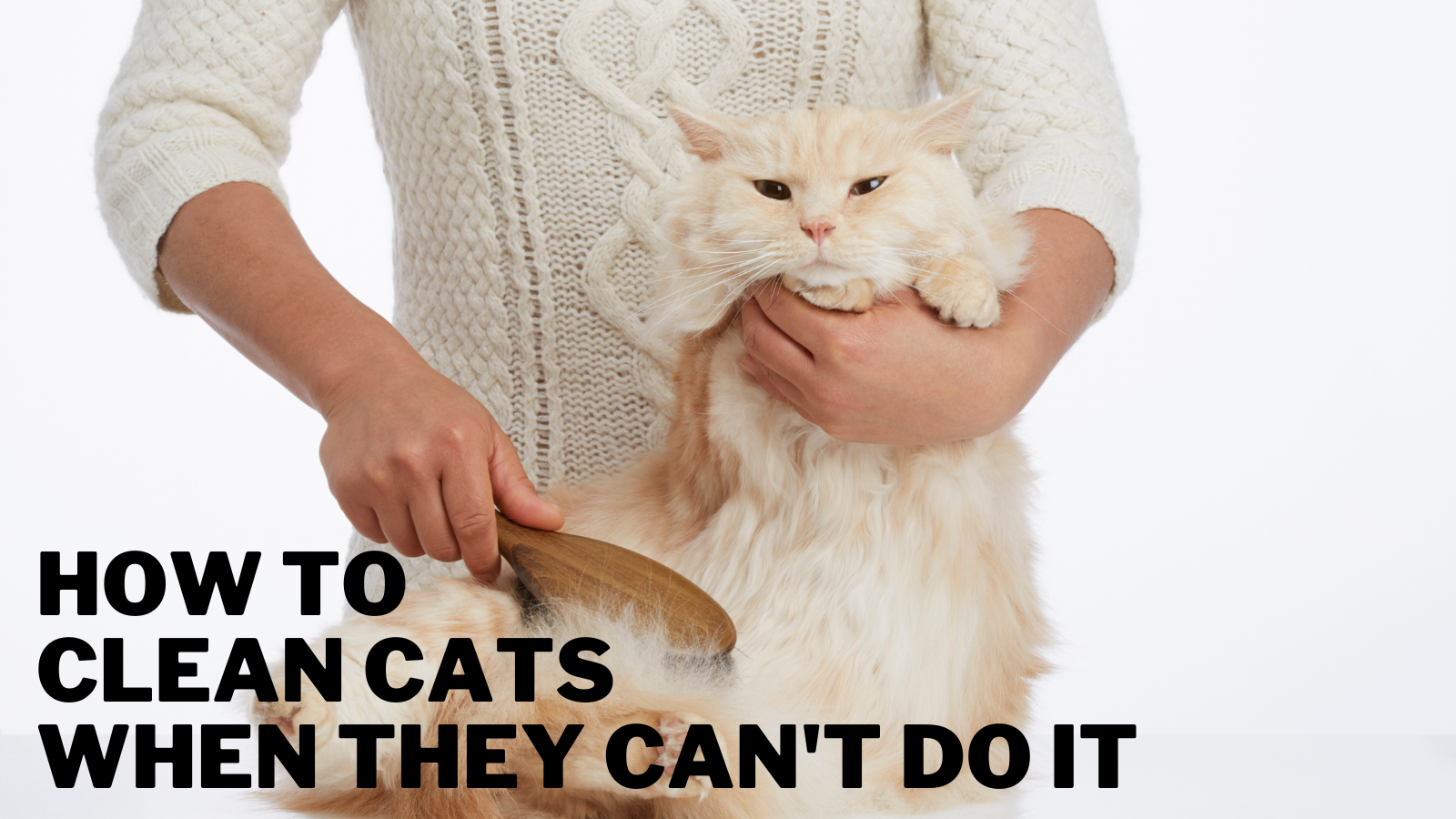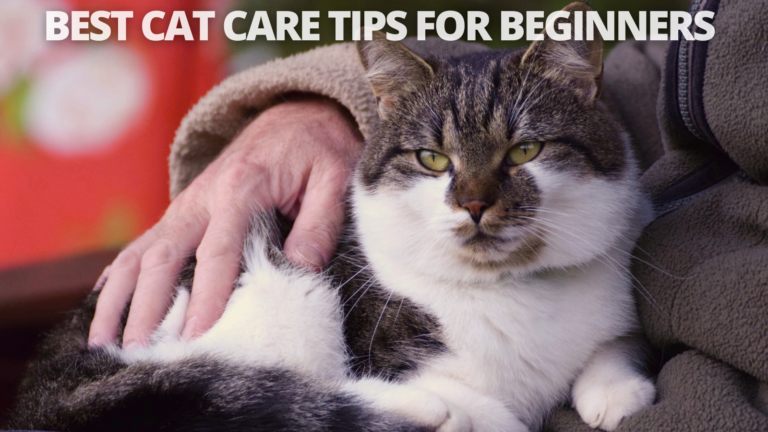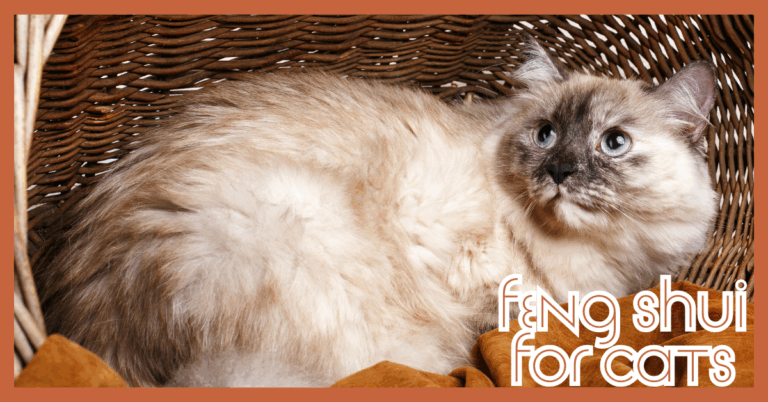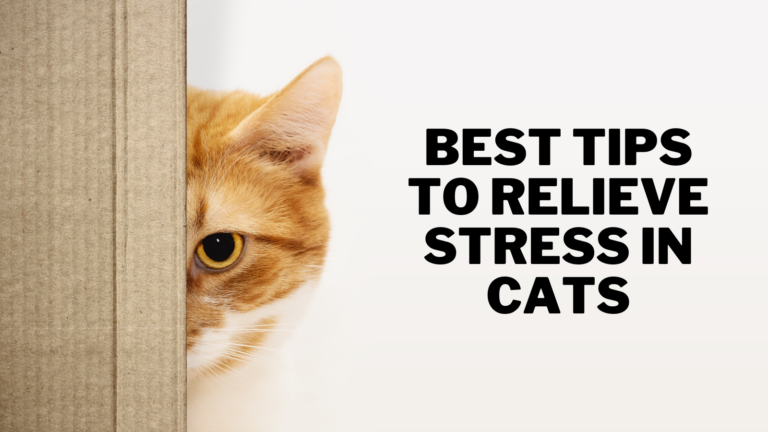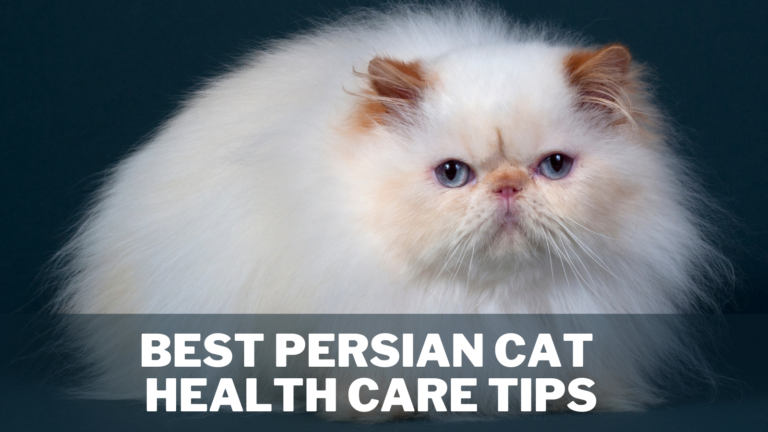How To Clean Cats When They Can’t Do It
How To Clean Cats When They Can't Do It
Cats are known for their grooming habits, but sometimes they cannot clean themselves due to age, injury, or other health conditions. As a responsible pet owner, ensuring your cat stays clean and well-maintained, even if they can't do it themselves, is important.
This blog will provide tips and techniques on how to clean cats when unable to do so, helping maintain their health, comfort, and overall well-being.
From bathing to brushing, we will cover all the important aspects of keeping your cat clean and healthy, even in challenging circumstances. Whether you are a first-time pet owner or an experienced cat caretaker, this blog will provide valuable information to help you care for your feline companion.

1. Eyes
Cleaning a cat's eyes is a delicate task that requires special care and attention. Here are some additional tips for keeping your cat's eyes clean and healthy:
Warm Cloth
When cleaning your cat's eyes, it's important to use a warm, damp cloth. The warmth helps to loosen any discharge or dirt accumulated around their eyes' corners, making removing it easier.
When selecting a fabric, choose a soft material that won't irritate your cat's delicate skin, such as a clean cotton or a specialized pet cleaning cloth.
Ensure to dampen the cloth with warm water, not hot, to avoid burning or to irritate your cat's eyes. Gently wipe the fabric around the corners of each eye, being careful not to touch the eyes themselves.
Repeat this process as often as needed, based on the amount of discharge or dirt present. Keeping your cat's eyes clean is important to help prevent infection and promote overall eye health.
Tear Stains
Tear stains are common in some cats, especially those with light-coloured fur around their eyes. These stains can be caused by various factors, including excess tear production, clogged tear ducts, or a diet high in iron. Over time, tear stains can become unsightly and difficult to remove. To prevent tear stains from forming, it's important to keep your cat's eyes clean and free of discharge.
This can be achieved by using a warm, damp cloth to gently wipe around the corners of your cat's eyes regularly. If tear stains do develop, you can use a solution specifically designed for removing tear stains, which can be found at pet supply stores or online.
You can also ask your vet for the best product to use. You can maintain their overall eye health and appearance by keeping your cat's eyes clean and free of tear stains.
Irritation
If you notice any changes in your cat's eye health, such as redness, swelling, or discharge, it's important to take action promptly.
These symptoms can indicate that your cat's eyes are irritated or infected, and if left untreated, the condition can become more severe and potentially cause long-term damage. If you suspect your cat's eyes are irritated or infected, it's best to seek veterinary care as soon as possible.
Your veterinarian can perform an examination, diagnose the underlying cause, and provide appropriate treatment to help alleviate the symptoms and prevent further complications. They may also offer additional care instructions, such as using a warm, damp cloth to clean your cat's eyes and recommend any necessary medications or follow-up appointments.
By seeking veterinary care promptly, you can help ensure that your cat's eye health is protected and that any issues are treated effectively.
Eye Drops
If your cat is experiencing dry eyes, it can cause discomfort and potentially damage its looks. To help alleviate this condition, your veterinarian may recommend eye drops specifically designed for cats. These eye drops can help keep your cat's eyes moisturized and reduce symptoms of dryness.
When using eye drops, it's important to follow the instructions carefully and use them as directed by your vet. Never use human eye drops on your cat, as these can contain toxic ingredients and cause further irritation or harm.
If you have any concerns about using eye drops on your cat, it's best to speak with your vet to ensure that you're using the right product and following the correct instructions. By using eye drops as recommended, you can help keep your cat's eyes healthy and comfortable.
Gentle Touch
Handling your cat with a soft touch is important for its comfort and well-being. When cleaning your cat's eyes, it's important to be mindful of their facial expressions and body language, as this can indicate if they are uncomfortable or in pain.
If your cat seems anxious or distressed, it's best to stop what you're doing and try again later when they are more relaxed. Some cats may be more sensitive to touch around their eyes and may require extra patience and a gentle approach.
It's important to respect your cat's boundaries and never force them to undergo any procedure they are uncomfortable with. Handling your cat gently can help reduce their stress and promote a positive experience during eye cleaning.
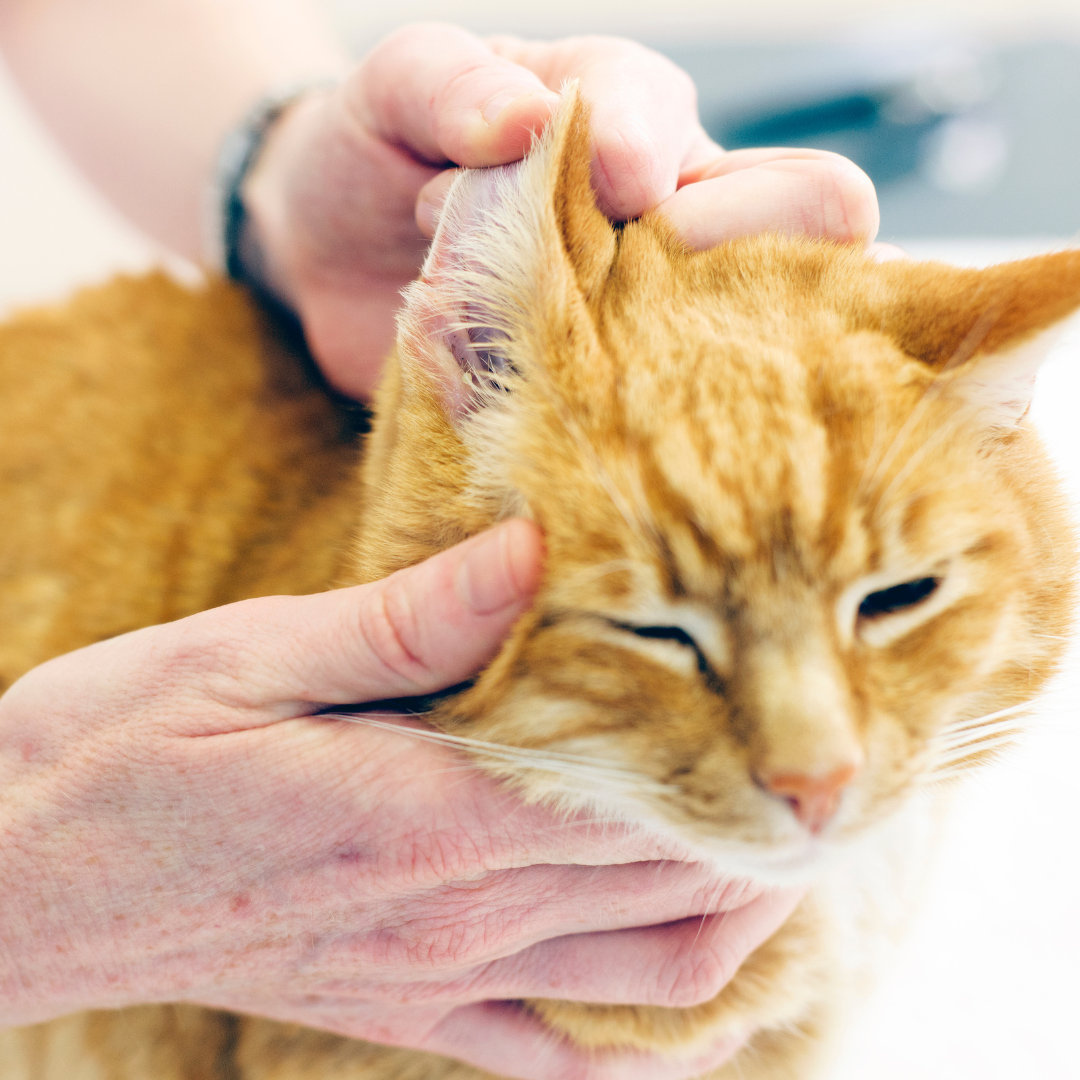
2. Ears
Cats are delicate creatures with unique needs, especially when it comes to their ears. Regularly checking and cleaning your cat's ears is an important aspect of their overall health and hygiene. This blog will discuss the steps you can take to ensure your cat's ears are healthy and free from infections.
Check Regularly
To keep your cat's ears healthy, check them for any signs of infection or irregularities. By reviewing your cat's ears regularly, you can promptly identify and address any issues, preventing further complications and ensuring your cat's continued good health.
Signs Of Infection
When checking your cat's ears, it's important to look for any signs of redness, swelling, or discharge. These symptoms can indicate an infection and should take seriously. Conditions in a cat's ears can be painful and cause long-term damage if left untreated.
If you notice any of these symptoms, it's important to seek veterinary care promptly to ensure prompt and proper treatment. Your veterinarian will be able to diagnose the underlying cause of the infection and recommend the best course of action to address it. Early treatment can help prevent the spread of the condition and reduce the risk of permanent damage to your cat's ears.
Cleaning
When cleaning your cat ears, it's important to avoid causing pain or discomfort. Using a damp cloth or cotton ball, gently clean the outer part of the ear. The ear canal is self-cleaning, so inserting anything into it is unnecessary.
By cleaning the outer part of the ear only, you can help prevent any dirt or debris from accumulating and reduce the risk of infection.
If you're unsure how to clean your cat's ears or if you notice any signs of infection, seek the advice of your veterinarian. They can provide the information and guidance you need to ensure your cat's ears remain healthy and clean.
Hair Maintenance
For cats with long hair, hair maintenance is important to ear health. Long hair can easily become matted and trap dirt and debris, increasing the risk of infection. To prevent this, consider trimming the hair around your cat's ears regularly.
This will help keep the area clean and reduce the risk of matting and dirt buildup. Trimming the hair can also help improve air circulation and reduce the risk of overheating, which can be especially important during hot weather.
If you need more confidence in your trimming skills, consider taking your cat to a professional groomer or seeking the advice of your veterinarian. They can help ensure that the hair is trimmed correctly and that your cat's ears remain healthy and clean.
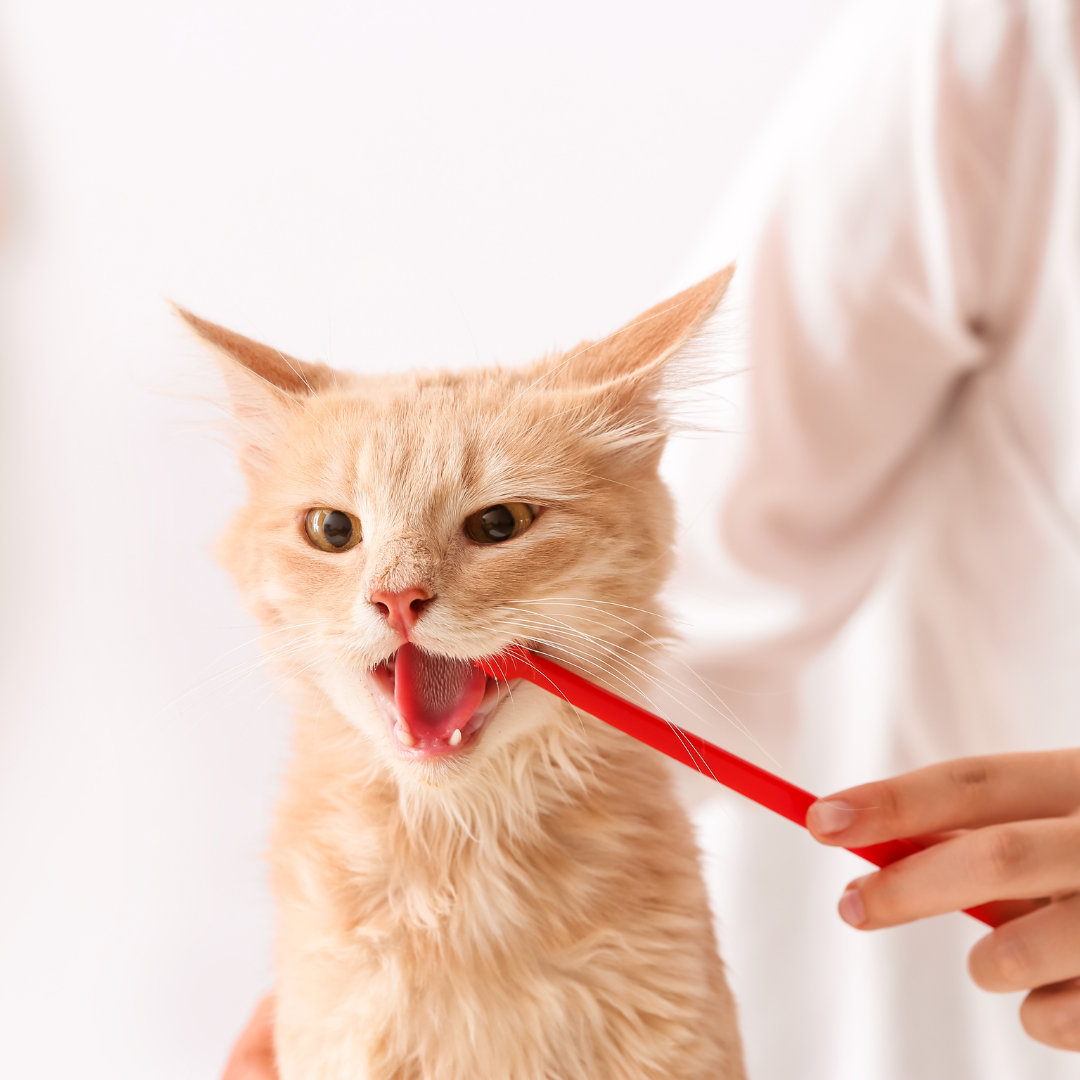
3. Teeth
Regular brushing and dental check-ups are important for maintaining your cat's dental health and preventing potential oral problems. To make the brushing process easier, start by gradually introducing the brush and toothpaste, using a soft-bristled brush and a pet-safe toothpaste specifically formulated for cats.
Regular brushing can help prevent plaque and tartar buildup. In contrast, regular check-ups with a veterinarian can assess the health of your cat's teeth and gums and provide additional cleaning or treatment as needed. If your cat is experiencing dental problems, seeking professional veterinary care is important to ensure its overall health and well-being.
Start Slow
Introduce the brush gradually: Before actually brushing their teeth, let your cat sniff and become familiar with the toothbrush and toothpaste. You can start by letting them lick the toothpaste from the brush, then gradually work your way up to gentle brushing.
- Once your cat is comfortable with brushing, make it a regular part of your routine to help maintain its dental health.
- When brushing your cat's teeth, angle the brush towards the gum line and use gentle circular motions.
- Be sure to brush all surfaces of the teeth, including the fronts, backs, and tops.
Regular dental check-ups with your veterinarian are also important to maintain your cat's dental health. They can assess the health of your cat's teeth and gums and provide additional cleaning or treatment if needed.
Pet-Safe Toothpaste
Make sure to use specifically formulated toothpaste for cats. Human toothpaste can be harmful to cats, as it contains ingredients that are toxic to them. Choose a safe and delicious toothpaste for your cat, such as a flavour they like, to encourage them to cooperate during the brushing process.
Regular Brushing
Regular brushing can help prevent the buildup of plaque and tartar, which can lead to tooth decay and gum disease. Keeping your cat's teeth clean will also help maintain their overall health, as dental problems can affect other body parts.
Brushing your cat's teeth should be done calmly and gently, and you should start by letting your cat smell and taste the toothpaste before you begin. Gradually increase the length and frequency of brushing sessions over time, and always praise and reward your cat after each brushing session to help make it a positive experience.
Seek Professional Help
If your cat is experiencing dental problems such as tooth decay, gum disease, or abscesses, it's important to seek professional veterinary care as soon as possible. These issues can lead to serious health problems if left untreated, and your vet can provide appropriate treatment and recommendations for maintaining your cat's oral health.
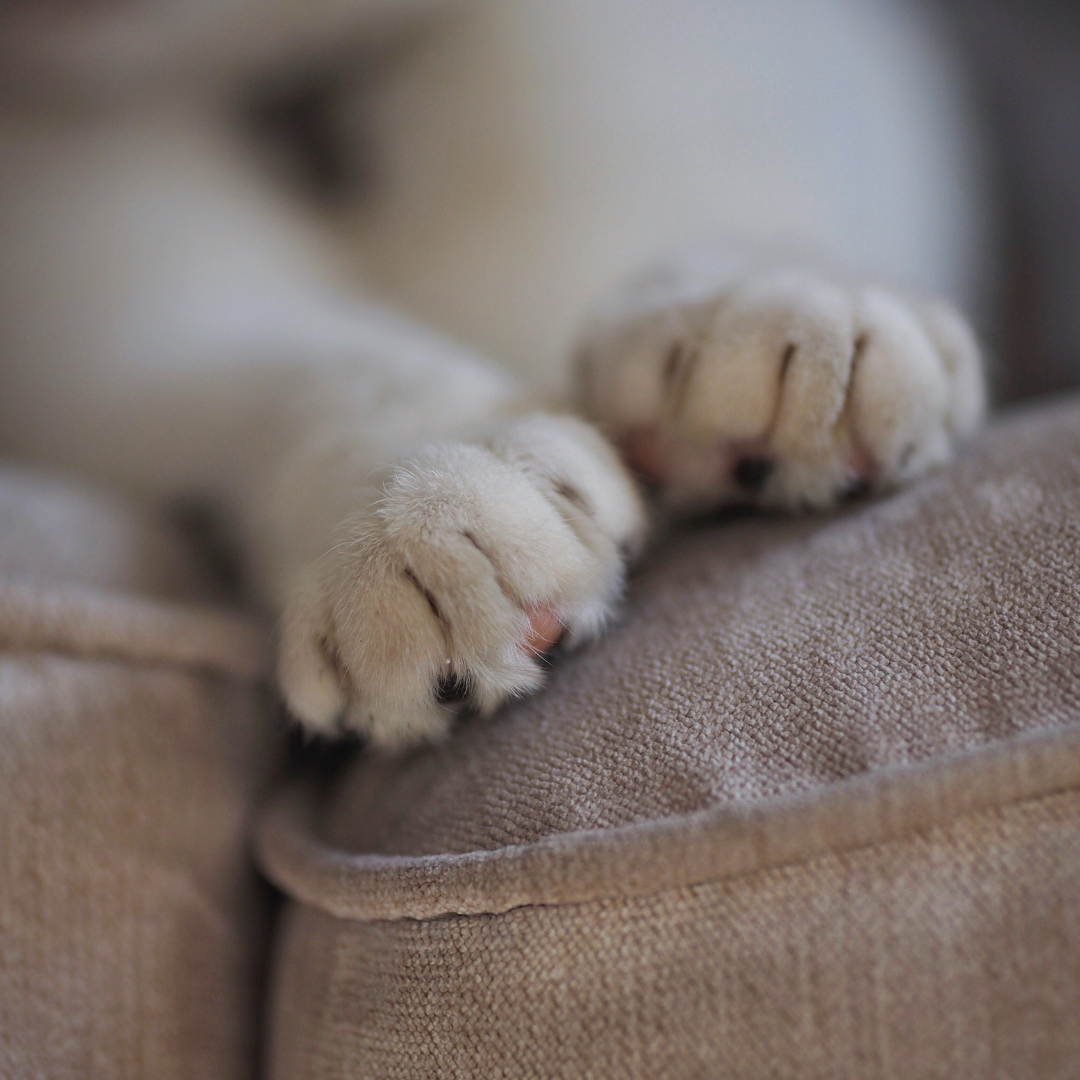
4. Feet
Regular paw cleaning for cats is important to maintaining their overall health and well-being, especially if they spend time outside. By wiping their paws regularly, you can help ensure that they are clean and free of any uncomfortable or harmful substances, which can contribute to their comfort and hygiene.
Additionally, removing dirt and debris from your cat's paws can prevent skin irritations, infections, and other health problems. Inspecting their paws regularly can detect any cuts, scrapes, or other injuries that may need attention.
Maintaining good hygiene for your cat's paws can keep their environment clean and reduce the risk of spreading germs or infections to others. Regular paw cleaning is a simple and effective way to promote the health and happiness of your furry friend.
Outdoor Exposure
Additionally, outdoor exposure can lead to the accumulation of dirt, mud, and other debris on your cat's paws, which can be uncomfortable and cause irritation. Regularly wiping their paws can help keep them clean and comfortable and prevent skin infections or injuries.
Regular paw cleaning is a simple and effective way to maintain your cat's overall health and well-being, especially if they spend time outside.
Comfort
Regularly wiping their paws can help ensure that your cat's paws stay clean and free of any uncomfortable or harmful substances, contributing to their overall comfort and well-being.
Additionally, regularly inspecting your cat's feet can help you detect any cuts, scrapes, or other injuries that may need attention, helping you to keep your cat healthy and happy.
Dirt And Debris
By wiping your cat's paws, you can help to prevent any potential skin irritations, infections, or other health issues. Additionally, removing dirt and debris from your cat's feet can help to keep their fur clean and free of mats and tangles.
It's also a good idea to check your cat's paws for any signs of injury, such as cuts, bruises, or sore spots. If you notice any signs of damage, seek veterinary care promptly.
Hygiene
Wiping your cat's paws helps keep its environment clean and free of harmful or dirty substances, promoting good hygiene for your cat and home. Maintaining good hygiene can reduce the risk of your cat spreading germs or infections to others and help keep them healthy.
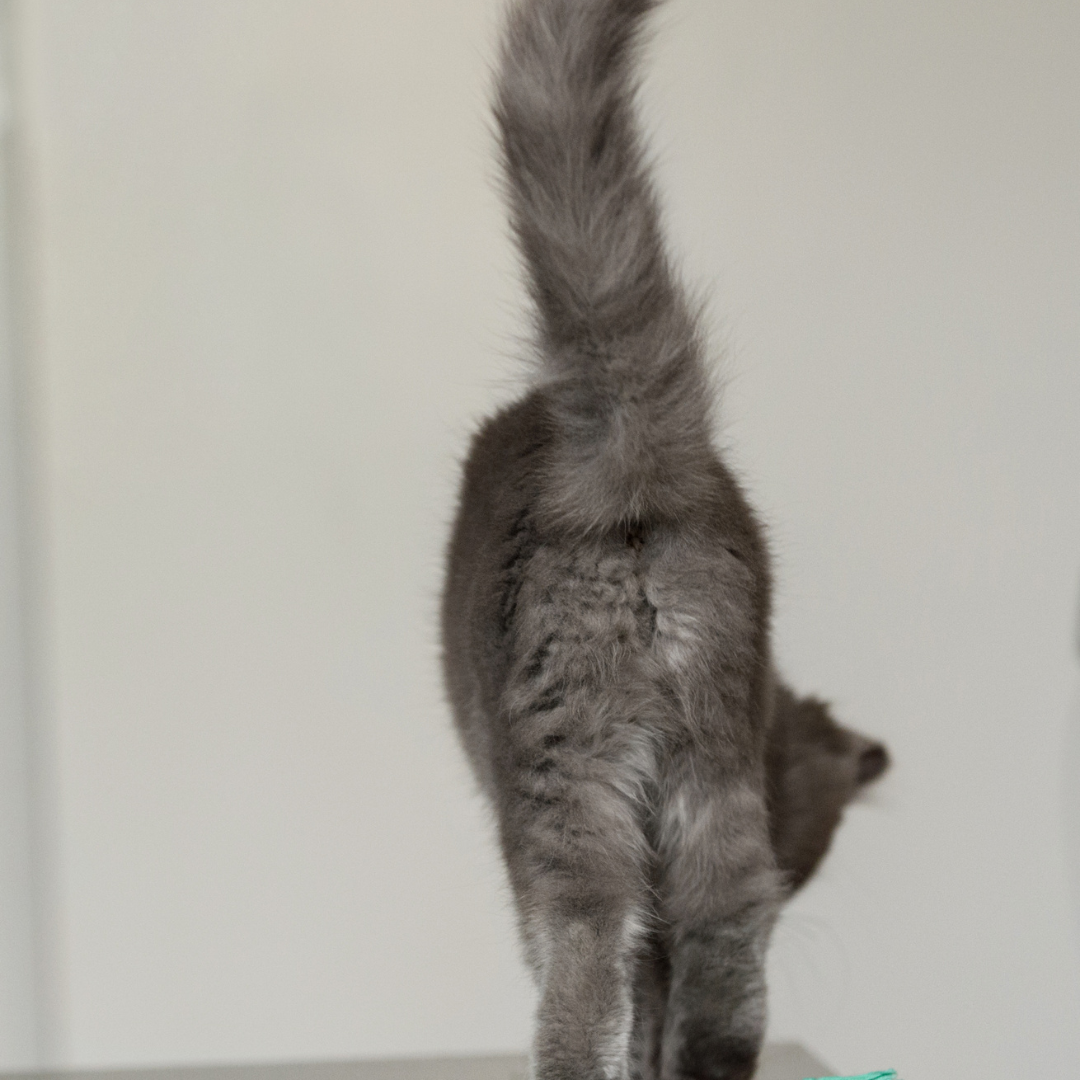
5. Anal Glands
Impacted anal glands are a common issue in cats that can cause discomfort and lead to more serious health problems if left untreated.
It is important to be aware of the signs of impacted anal glands, including scooting or excessive licking of the hind end, a strong fishy odour, and difficulty with bowel movements.
If you suspect your cat has impacted anal glands, it is best to take them to the vet as soon as possible. The vet can express the glands safely and effectively and check for any underlying health conditions.
Preventing impacted anal glands can be achieved by maintaining a healthy diet for your cat, ensuring regular grooming, and scheduling regular check-ups with your veterinarian. A diet high in fiber can help regulate your cat's digestive system and prevent constipation, while regular grooming can stimulate the release of anal gland secretions.
Your vet may also recommend additional grooming practices or dietary changes if your cat is prone to anal gland issues. Regular check-ups with your veterinarian can help detect potential problems early, allowing for prompt treatment and a better outcome for your cat. Keeping your cat healthy and comfortable can help ensure your furry friend's happy and long life.
Signs Of Impacted Anal Glands
Impacted anal glands can cause discomfort and pain for your cat and, if left untreated, can lead to more serious health problems.
In addition to scooting or licking, you may also notice your cat has a strong, fishy odour coming from their hind end or having trouble with bowel movements. If you suspect your cat has impacted anal glands, it's best to take them to the vet as soon as possible.
Importance Of Vet Expression
Anal glands can become impacted and cause discomfort for your cat. Expressing the glands, or releasing the fluid they contain, is best done by a veterinarian, as attempting to do it yourself can be dangerous and lead to injury or infection.
The vet will have the proper tools and training to safely and effectively express the glands and can also check for any underlying health conditions contributing to the problem.
Health Implications
By having your cat's anal glands expressed by a vet, you can prevent the build-up of fluid and pressure, which can lead to discomfort and pain. Additionally, impacted anal glands can become infected, leading to more serious health problems. Regularly expressing your cat's anal glands, as recommended by your vet, can help maintain their overall health and well-being.
Prevention
Maintaining a healthy diet for your cat and ensuring that they are regularly groomed can help prevent the formation of impacted anal glands. A diet high in fiber can help regulate your cat's digestive system and avoid constipation, a common cause of impacted anal glands. Additionally, regular grooming, such as brushing, can help to stimulate the release of anal gland secretions, reducing the risk of impaction.
If your cat is prone to anal gland issues, your vet may recommend a special diet or additional grooming practices to help keep them comfortable and prevent future problems.
Regular Check-Ups
During regular check-ups, your veterinarian can examine your cat and check for any signs of impacted anal glands. They can also make recommendations for diet and lifestyle changes that may help to prevent the formation of impacted anal glands in the future.
Additionally, regular check-ups can help to detect other health problems early, allowing for prompt treatment and a better outcome for your cat. By maintaining a schedule of regular check-ups, you can help ensure that your cat stays healthy and happy.
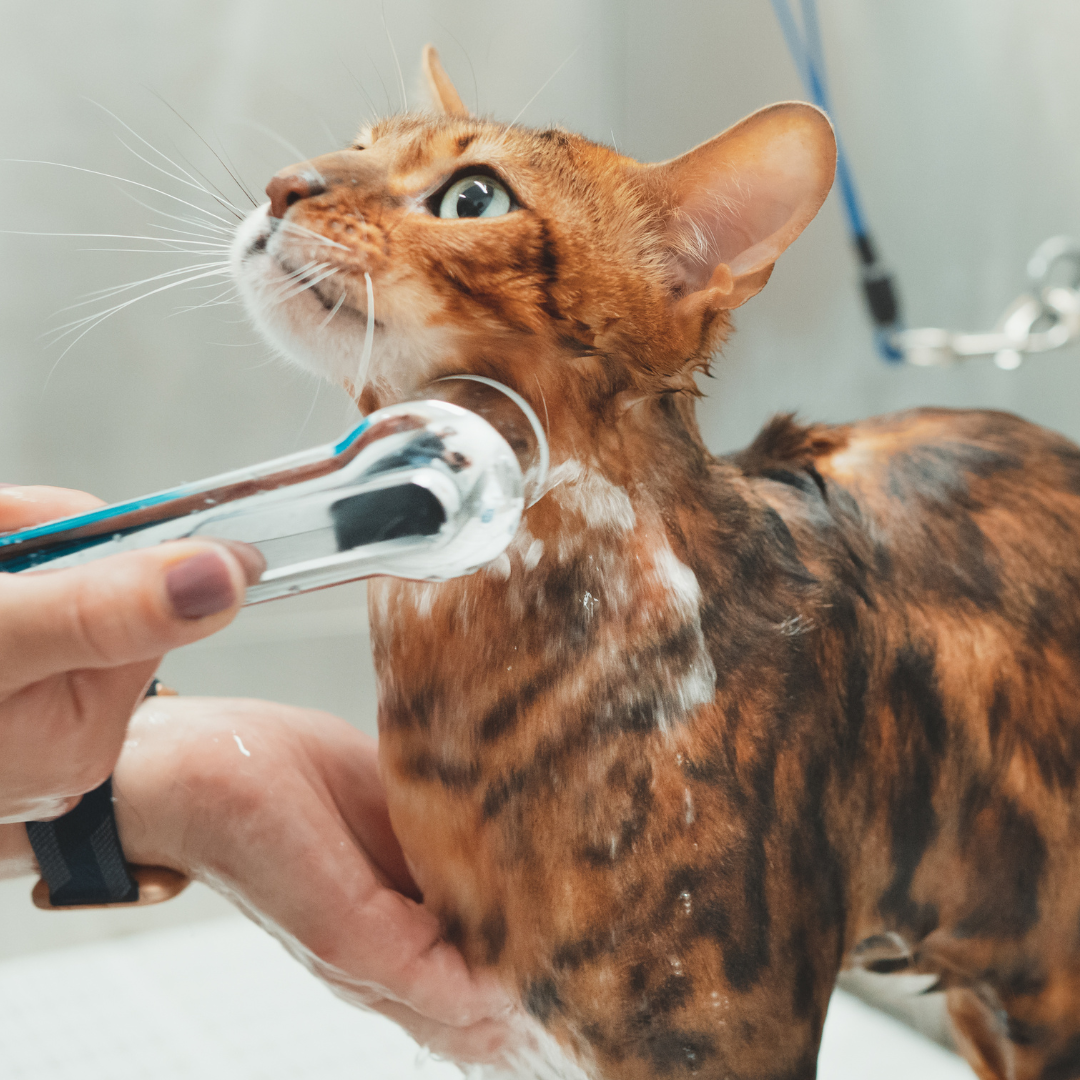
Conclusion
Cleaning a cat when it can't do it can be challenging, but it can be done with patience and the right tools. It's important to remember to use a cat-friendly shampoo and to be gentle with your cat throughout the process.
If you have concerns about your cat's health or ability to groom themselves, it's best to consult a veterinarian. Keeping your cat clean and well-groomed is an important aspect of pet care, and it can help keep your cat healthy and happy.
Following these steps can help your cat maintain its natural beauty and cleanliness, even when it can't do it itself.
I trust you enjoyed this article on How To Clean Cats When They Can't Do It. Please stay tuned for more blog posts to come shortly. Take care!
JeannetteZ
>>>Please click here to read my all-inclusive article about the Best Cat Care Tips For Beginners<<<
My #1 Herbal Remedies For Pets Recommendations
Your Opinion Is Important To Me
Thoughts? Ideas? Questions? I would love to hear from you. Please leave your questions, experience, and remarks about the article How To Clean Cats When They Can't Do It in the comments below. You can also reach me by email at Jeannette@Close-To-Nature.org.
Disclosure
This post may contain affiliate links. As an Amazon Associate and other affiliate programs, I earn from qualifying purchases at no extra cost to you. Please read my full affiliate disclosure.
You might also enjoy these blog posts:
Best Homemade Remedies For Glass Skin
Best Homemade Remedies For Cough

